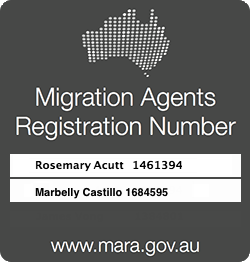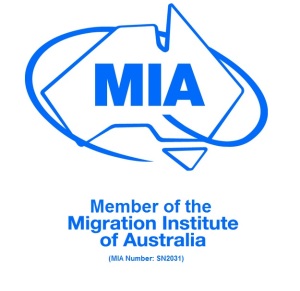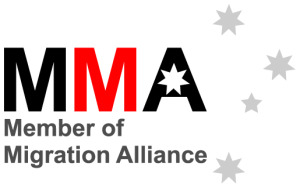What To Do When Things Go Wrong
At Queensland Migration Practice, we understand how difficult it can be when things go wrong on your migration journey. We are experienced in protecting your interests.
Migration is a complex area of law and the list of things which ‘can go wrong’ is almost endless. Some common examples include the following:
- You have applied for a new visa and the application is refused.
- Your visa has expired and you have remained in Australia without a valid visa.
- You are caught breaching a condition of your visa (e.g. no work) and your visa has been cancelled.
- You have forgotten to notify the Department when you moved address and as a result you did not receive important correspondence about your visa.
How Can We Help You?
Our registered and experienced migration solicitors can help you in a number of ways. We can:
- Advise you on the options available to you to regularise your status while remaining in Australia
- Prepare an application for review on your behalf
- Advise you on how to be released from detention
- Arrange for your voluntary departure from Australia
- Advise you on your chances of being able to return to Australia
Has your visa been refused?
The Department of Immigration must consider all valid visa applications and is ultimately responsible for making a decision about whether to grant or refuse your visa. In most cases, the Department must notify you once a decision has been made.
If you have received a decision that your visa has been refused, it is important that you get advice fast.
In the majority of cases a Bridging visa held by a person as a result of a valid application for a visa will expire 28 days after they are notified of a decision regarding their application.
If you do not leave after the 28 days and you do not hold or apply for another visa or for a review of the decision, the bridging visa will cease and your presence in Australia will become unlawful.
You must be aware that the time limit for applying for a review may expire before the bridging visa does.
Has your visa been cancelled?
The Migration Act requires you to hold a valid visa at all times if you wish to enter and remain in Australia. It is also necessary for you to abide by all the conditions attached to your visa.
If the Department of Immigration compliance officers find that you have breached a condition of your visa (whether knowingly or unknowingly), this could result in your visa being cancelled.
There are a number of other grounds upon which a visa may be cancelled:
- Where the grounds for holding the visa no longer exist
- Where visa holders fail to undertake business or investment activities which they had promised to do in their visa application
- Where the visa holder fails to commence their employment within 6 months of the visa grant, or leaves their sponsor/employer within 2 years of the visa grant
- Where the Minister is not satisfied that the visa holder passes the character test (because of their substantial criminal record, for example)
A visa holder’s visa can only be cancelled where a ‘ground’ for cancellation exists.
The power to cancel a visa is discretionary in most cases. This means that while the Department of Immigration has the power to cancel the visa, they are not mandatorily obliged to do so. The Department will look at all of the circumstances when considering whether a visa should be cancelled.
Because the decision maker has some degree of choice about whether or not to cancel a person’s visa, we can assist you by preparing persuasive submissions on your behalf. The objective of a powerful submission is to give the decision maker reasons why their ability to cancel a visa should not be exercised.
Visa cancellation could result in detention, being granted a Bridging visa on the proviso that the visa holder leave by a specified date, or you might find that you cannot reapply to return to Australia for a number of years.
For this reason, if your visa has been cancelled or you think that it might be cancelled, it is important that you get legal advice fast.
Remember, there is generally (but not always) a right to apply for a merits review of a cancellation decision (meaning to the Administrative Review Tribunal). A merits review allows another opportunity to make submissions and ensure that your case is heard.
What to do if your visa has been refused or cancelled?
If you have received a decision from the Department refusing your visa application or your visa has been cancelled, you may have review rights available. Most appeals will be heard by the Administrative Appeals Tribunal (AAT).
The advantages of an AAT review are as follows:
- It is an independent body from the Department of Immigration and thus the presiding Member of the tribunal can make a fresh decision on your application.
- The tribunals are required to conduct the review in a manner that is fair, just, economical, informal, quick and independent.
The AAT’s current cost for filing an application for review is $3,000.00. If you are successful in the review, you will receive half of the fee back by way of a refund. There is no charge to review refugee matters, however if the decision is unsuccessful, you will be required to pay $3,000.00 to the tribunal.
FREQUENTLY ASKED QUESTIONS
Briefly stated, reviewable decisions fall into two broad categories. That is: decisions made in respect to applications onshore and decisions made in respect to applications offshore (overseas).
As a general rule, visa refusal decisions made onshore have a period of 28 days to seek a review; whereas decisions made offshore (overseas) have a total of 70 days to seek a review.
If your visa has been cancelled, shorter time frames apply.
The decision you receive from the Department will generally state the time limits which you face.
At Queensland Migration Practice, we understand that your case is an emotional and financial investment. We provide realistic advice and take a long-term, strategic approach to what you can achieve. We are not afraid to look beyond an outcome at the MRT, including opening the door to other strategic options.
Our staff have attended over five hundred hearings and are experienced in all aspects of the review process. For a confidential discussion about your options, contact us today.
To enliven the Ministerial Discretion, you must make an application to the Ministerial Intervention Unit.
It is important to understand that the Minister cannot be compelled to assist in your matter. If your request to the Minister has insufficient evidence, is difficult to comprehend or fails to be compelling, the Minister is likely to simply reject the request.
The Minister is not required to even look at a request as an exercise of his or her power and it is entirely counterproductive for a submission to suggest otherwise.
At Queensland Migration Practice, our lawyers are adept at researching and drafting persuasive submissions to Minister to bring your personal circumstances into consideration. We can guide you through the process from start to finish.
Please note that in the event that the Minister chooses not to intervene, his decision is not merits reviewable.




